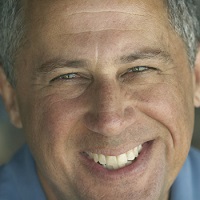“We fell morally ill because we became used to saying something different from what we thought.”
~ Václav Havel
It is not uncommon to read about some scandal of corruption, fraud or deception–by government officials, corporate executives, spiritual leaders, celebrities or sport figures.
Even the Catholic Church is not immune, paying out billions of dollars in penalties for not speaking authentically about decades of child sexual abuse.
I want to set things straight. We are not victims in this. The light is always on. What people do is always visible. Maybe someone is not speaking truthfully, but maybe we are not listening for the truth.
If we really want to, we can see with our light into the darkness that others may use to cloak and camouflage their speaking. As we begin to speak authentically and transparently, we begin to listen in the same way. This is how we begin to see who else speaks authentically, and who does not.
But we have got to go first. We need to learn how to show who we are, from deep inside us.
We need to tell the truth. Then we will be able to know who else is doing it. Once we get used to telling the truth—to living and speaking authentically––we get used to discerning the truth.
I can think of few things more essential, more urgent, more compelling for people than this: learn to speak in public with authenticity, with honesty, with transparency. Why? What’s at stake? Your life. Your soul. The fate of the world. If you can speak authentically, you will bring untold blessings to yourself, your family and friends, your community—the Earth herself will be glad!
James Cagney, the actor famed for his tough-guy roles, pointed toward authentic public speaking when he offered a novice actor this essential teaching: “It’s simple. You walk in the room, plant your feet, look me in the eye, and tell the truth.”
Can we do that? It’s more difficult than you might think.
I define public speaking as speaking with anyone other than yourself, regardless of numbers, venue, or purpose. Do not confuse public speaking with lecturing or giving a speech. Those are different types of public speaking.
Everyone is a public speaker—I am a public speaker and you are a public speaker! Speaking itself is more than the words that come out of our mouths and more than the nonverbal signals we transmit. Speaking is how we move in and through life. Our very life is our speaking.
Our speaking tells the story of who we are and how we live. If we are to live a true life, a vibrant and vivid life, then our speaking will reveal, rather than conceal, our heart––the truth of who we are, what we are doing, and what we stand for. Deep speaking reveals the self, the pristine essence with a spine so strong that it stands as the axis of the world.
The question is: Do you speak this way? Does anyone? Do you know what this sounds like?
You are Good Enough
When we stand in front of others, we expose ourselves completely—assuming we are speaking truthfully. This total vulnerability triggers every one of our insecurities and fears, especially the fear of not being good enough. I am not talking about being good enough to speak well. I mean good enough as a human being.
We hide because we are afraid that if we are seen, we will not be good enough.
Almost everyone who comes to my Speaking Truthfully master classes is hesitant, if not afraid, to stand before the group and speak their truth. It means showing ourselves, not our “knowing.” It means being willing to be seen by people without defense or pretense, without fear of their criticism and judgment, without hiding.
I ask people at my workshops to show themselves to others—without masks and roles, without prepared texts or PowerPoint presentations. Until we can do this, we cannot really live authentic lives. Our fear of being seen and judged as not good enough will rule us and run us from dawn to dusk.
One of the most challenging exercises for participants in my workshops is the one in which I ask them to stand before the group without saying anything.
I ask them only to see and be seen; to connect with each person in the audience, with their eyes and hearts; to notice any tendency to hide or retreat, any feeling of contraction or tension; to breathe, open, saying nothing; to just be present with themselves and others.
To let people in.
Most want to run away. They want to laugh, joke, clench their jaws, or look away. One teacher kept turning around, wanting to write something on an imaginary blackboard. Another kept shifting from one foot to the other. Some say they want to sit down.
It is difficult. People have a hard time connecting.
Most of the ills of our world are the result of a lack of real connection. We meet each other, yes. But we meet behind layers of protection. In other words, we hide. Not only do we hide from each other, but we hide from ourselves.
Our communication is a lie. It presents who we think we should be rather than who we really are.
I am not suggesting that we disclose the minutiae of our life indiscriminately. I am talking about revealing that thing in us that other people can trust.
Years ago, I did enough rock climbing to know that when it came time to pick a belay partner—the person to whom you were entrusting your life. I chose based on that thing in them that I could trust. It was their inner character that I knew would not betray the trust I was placing in them.
I needed to see and feel something from their core that would say, “I’ve got you. Climb away.” If I did not see it, if I did not feel it, well…no, thanks.
Take Off the Mask
Being an authentic speaker is not a matter of content, technique or scripted actions. As far as I know, there is no precise prescription, no how-to manual, no one-size-fits-all recipe for authenticity.
Master chef Julia Child taught, “You don’t need recipes. You only need principles of cooking. If you need recipes, you’ll never be a chef. ”In the same way, you cannot become an authentic speaker by following a recipe or imitating someone else, or by raising your hand just so when you say just this.
Do not look for a model or precedent. It does not matter who else has or will do it. Maybe no one ever has. The principles of authenticity are universal: intimacy, vulnerability, and connection, as well as courage, truth, spirit, transparency.
Authenticity means to meet people without a mask or disguise. A telling distinction must be made between those who speak about authenticity, and those who speak from authenticity. It may not be easy to speak from this place, but the willingness to do so is what will get us there.
Many of the business leaders I have coached find it difficult to embody my defining dictum of authenticity: You are the message. I ask them to speak and lead with themselves out front. But they would rather speak and lead with their title, accomplishments, charts or net worth.
In essence, they want to hide. Yet when the x-ray machine is scanning for their true heart or soul, what do we see?
Many people confuse information with communication. Sydney J. Harris, an American journalist and author, sets us straight: “The two words ‘information’ and ‘communication’ are often used interchangeably, but they signify quite different things. Information is giving out; communication is getting through.” Getting through requires authentic connection.
Authentic connection means touching your audience by speaking from your heart to theirs, in a simple, direct manner. You look in their eyes and you tell the truth. Authentic connection has a precise formula:
Authentic Connection = Intimacy with Self + Vulnerability with Others.
“Intimacy with self” implies a willingness and capacity to know ourselves deeply, from the inside out; to excavate— through layers of repression—a dynamic place of genuine enthusiasm for life. There is a depth within each of us that connects us, as individuals, to the whole. Not just to others, but to all of nature, the earth and the cosmos.
When we can open ourselves to this depth, we can receive what is already there within us, waiting to be expressed. This is how we become most fully our unique self while being most fully connected to others and to life.
“Vulnerability with others” implies a willingness and capacity to see and to be seen—to stand in front of others, fully seeing them and allowing them to see us, without putting up masks or barriers behind which to hide or distort our genuine presence. Vulnerability is risky business, at best.
In my master classes, I assign all kinds of topics for sample talks. Somewhere around the halfway mark of the session, I almost always say, “Give a three-minute talk beginning with the line, ‘What I love most in the world is…’”
If people start too fast, or if I think they are too much in their heads, I stop them. “Saturate each word with the feeling of love. Don’t describe, demonstrate. Feel it. Show it. If tears come, let them come. If your feelings overwhelm you, if you can’t speak because of the emotion, then stand there without speaking, and just show us the emotion.”
Sometimes I will share a story of times when I have sat on a stage in front of hundreds of people and cried. I am not telling them to do just this, or even saying that they should.
I am saying that our true emotions are a part of our speaking. We do not have to be afraid of these feelings and bury or manage them. We can let them be a part of our speaking.
It never fails. When people begin to go deeper, their talks become dramatically different from their first attempts. Something happens to them when they share their connection to someone or something they love.
Their faces are brighter, their rate of speech slows down, the quality of their connection is vastly stronger. They stop hiding. They become, in a word, real.
They become present. They become beautiful and inspiring speakers.
Speak from the Heart
I emphasize the importance of speaking from the heart. I want people to see for themselves that when they settle into themselves and talk about things that matter to them, when they open their hearts to the audience, it is transformative. There is an intoxicating freedom and power in this realization that we do not have to fear our hearts.
We can only speak from the heart if we know it. If we know and speak our heart, we elevate and beautify our speaking beyond any technique or skill. In this elevation of our speaking, something magical and almost unbelievable happens in us and in our audience.
Please find out what that is. It is awesome. You will be amazed.
~
Love elephant and want to go steady?
Sign up for our (curated) daily and weekly newsletters!
Author: Robert Rabbin
Editor: Travis May
Photo: elephant archives
 Share on bsky
Share on bsky




Read 2 comments and reply